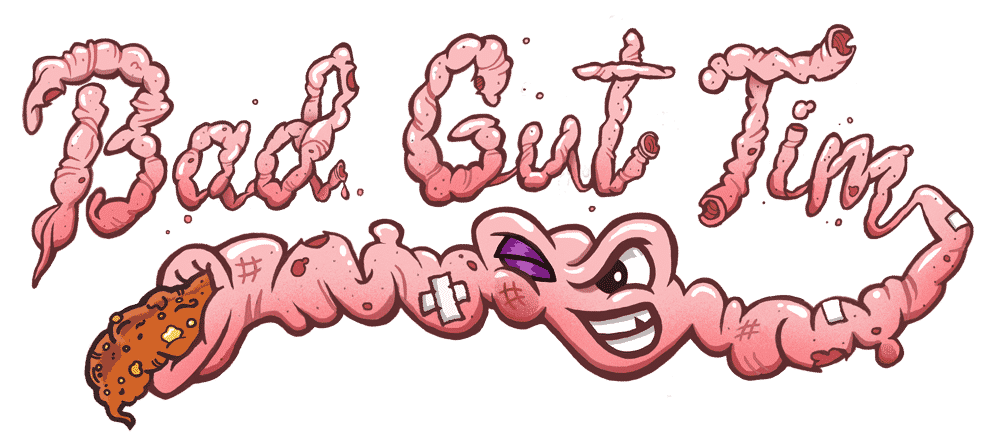The New York Times publishes a weekly column called The Ethicist, where author Kwame Anthony Appiah answers ethical questions sent in by readers. Early last June, they released an edition entitled “Is It OK to Dump Him Because of His Medical Condition?” To summarize, the letter writer explains that she recently began seeing a man who disclosed to her that he has Crohn’s Disease. She’s conflicted about whether or not it would be unethical to stop seeing this man because of his chronic illness. Appiah weighs in and tells her that at this stage in the game, it’s okay to end the relationship. He goes on to explain that the letter writer does not owe it to the man to accept the burden of taking on a role as a potential caregiver.
This column was met with intense fervor from the online chronic illness community. So much so that Appiah actually wrote an eloquent addendum to his initial response- a fact that the author deserves credit for, but I had not been made aware of until I began doing research for this post. The overwhelming message on social media was that the Appiah’s response was unethical because people living with a chronic illness are not, themselves, a burden.
I have a lot of thoughts on this subject and wanted to weigh in at the time of the article’s writing. However, I didn’t think I could adequately express my feelings within Instagram’s 2,200 character limit, and my blog was under construction. So yes, I know I’m late to the party, but since Gali Health is focusing on relationships this month, I thought I’d reopen some old wounds. Lucky for you, I now have unlimited characters at my disposal!
Crohn’s Disease is a Burden
I want to start out with a statement of fact. Crohn’s Disease is a burden. I repeat, CROHN’S DISEASE IS A GOD DAMN BURDEN!
Crohn’s Disease has been a burden on my life for 17 years. That is an absolute truth that could never be disproven. It has been a burden to me physically, emotionally, financially, and every other “-ally” out there. Crohn’s is in the back of my head every morning when I wake up and stays there all day until I fall asleep. It importunately follows me around like Richard Sherman on Michael Crabtree.
Between the violent bouts of diarrhea, hospital stays, doctor visits, surgeries, and all the medical bills I’ve had to pay, I don’t think anyone is going to argue that Crohn’s or any other chronic illness isn’t a burden.
The Burdens of Your Disease Are Routinely Transferred to the People Around You
Here is where things start to get murky. Now, I’m not saying you’re burdening people as you walk through the grocery store. However, the burdens of my disease haven’t rested solely on my, or your shoulders. As a teenager, my parents made massive sacrifices because of my diagnosis. They spent myriad sleepless nights wondering if I was going to be alright and how they were going to pay for treatments. As I got older and entered into committed relationships, my burden became my partner’s to bear with me.
Appiah writes, “When a potential partner is already seriously ill, committing to this person may be committing to a life as a caregiver.” This is a genuine possibility. Just last November, my girlfriend’s daily schedule looked something like this:
6:00AM Wake up early to take care of our dog and get ready to work.
7:30AM Stop at the hospital to say good morning to me.
8:00AM Head to work for 8 hours.
5:30PM Come back to the hospital to visit for a bit.
6:30PM Head home to eat and take care of the dog.
8:00PM BACK to the hospital to spend more time with me before heading home to sleep just to wake up and do it all over again.
This went on for a month. Weekends looked slightly different, but they were mostly spent at the hospital with me. Kylie took every emotion I threw at her while she dealt with her own. She was indeed forced to take on a caregiver role.
To Not Acknowledge the Burden is Selfish
Anyone who willingly takes on the challenges of building a life with a chronically ill person deserves their fair share of acknowledgment and praise. That doesn’t make chronically ill people charity cases. Burdens are always shared between partners, but it takes a particular type of person to see past the symptoms of a chronic illness and instead see a person for who they truly are.
When I see folks on social media screaming, “I AM NOT A BURDEN,” they’re not wrong. Still, I can’t help but think that these people are so blinded by the fear of having their identity reduced to their disability, that they can’t see how selfish they sound.
Listen, I’ve been there. Like all ostomates, I sometimes struggle with bag changes. When my stoma doesn’t behave, I tend to spiral into a bad place mentally. I get angry, I scream, sometimes I cry. All of this happens while I am alone in the bathroom, but sound travels, and my girlfriend knows what is happening. She wants desperately to help, but she also knows there’s not really anything she can do. Recently she explained to me that while she can’t physically feel or understand what I’m going through, it still hurts her heart. That’s some pretty heavy shit and to not acknowledge the silent and invisible burden she carries with her all the time because of me, and my disease would be some grade A selfish bullshit.
It’s fair to remind yourself that you are not a burden, but also remind yourself of every person who has taken on a burden in your behalf and say a little thank you.
So, Is Kwame Anthony Appiah’s Response Ethical?
Yes.
When we enter into committed relationships, we take on our partner’s burdens. This could come in the form of debt, children from a past relationship, a chronic illness, or something else. Not everyone is going to be willing to take on that burden, and that’s okay! The point Appiah makes in his response is that when you first meet someone and a potential burden is identified, neither person owes it to the other to take on that burden. That goes for all foreseeable burdens, not just the burdens that go along with chronic illness. I emphatically agree with him on that.
As he states in his addendum, he may have only addressed half of the issue. That doesn’t mean his response was unethical.
Wait, So Does That Make You a Burden?
No.
Please understand this. Your existence is not a burden. You are not using up precious oxygen that would be better used by the able-bodied. You do not deserve to be flung off a cliff or left to die in a canyon.
You have immense value and are deserving of love.
The unfortunate reality is that folks living with a chronic illness do come with baggage that can turn into a burden for a significant other. Not everyone is going to be willing to take on that burden. The good news is there are plenty of beautiful people out there who will be willing to look past your illness and see you for you. Don’t let the fear of being looked at as a burden keep you from finding love. I promise, there’s a person out there for you.
What do you think? Was Appiah’s response ethical? Are my criticisms of the chronic illness community fair? Sound off in the comments section below!

